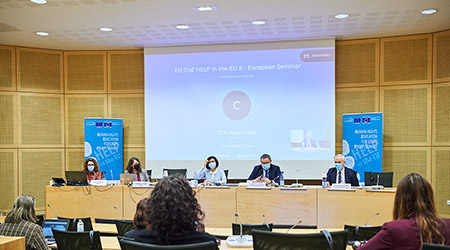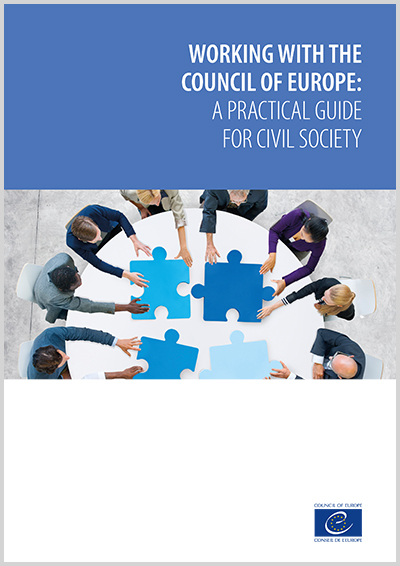Legal co-operation

Public institutions and services are the foundation of the social contract between individuals and the state. Their accessibility, legitimacy, and effective operation enable structural inequalities and breaches of law to be addressed, provide redress for violations and facilitate peaceful resolution of disputes, hence playing a critical role in sustaining accountability and trust, and contributing to the well-being of individuals and societies. Most people are affected by public and private law decisions at some time in their lives, especially as profound changes in society, economics and technology impact their lives. Common approaches at European level help member states design appropriate legislative and policy solutions and strengthen mutual trust and understanding, leading to better regional and cross-border cooperation in rule of law matters.
Through its intergovernmental work, the Council of Europe develops and promotes agreed common standards, policies and good practices that contribute to reinforcing the common legal space. Solutions are proposed where gaps, operational problems and obstacles to the ratification and implementation of conventions are identified. In addition, co-operation programmes support justice sector reform in member states especially in the areas of judicial, civil and administrative law and practice in line with Council of Europe standards.
European Committee on Legal Co-operation – CDCJ
The CDCJ oversees the Council of Europe’s work in the field of public and private law and advises the Committee of Ministers.
 Focus 2022-2025
Focus 2022-2025
Protection of the profession of lawyer; the rights and the best interests of the child in parental separation and in care proceedings; artificial intelligence and administrative law; preventing and resolving disputes related to child relocation ; administrative detention of migrants; child-sensitive procedures in administrative and migration law; rights of people conceived by donor to know their origins; legal aid and representation; access to justice for vulnerable people, mainstreaming gender in public and private law reform processes.
 Civil society involvement
Civil society involvement
- Participant: Conference of INGOs (CINGO)
- Observers
- Consultation with civil society, either through direct participation in meetings, through dedicated hearings in writing.
The Council of Europe develops public international law, international criminal justice and other topical issues by assisting member and observer states and international organisations in areas such as immunities, reservations and declarations to international treaties, implementation of international sanctions and respect for human rights, peaceful settlement of disputes including those of a private character, to which an international organisation is a party.
Committee of Legal Advisers on Public International Law – CAHDI
The CAHDI examines questions, exchanges views and provides opinions related to public international law.
 Focus 2022-2025
Focus 2022-2025
Legal opinions at the request of the Committee of Ministers, compilation of national practices from member and non-member states in different fields of public international law



